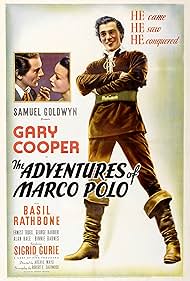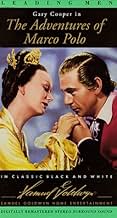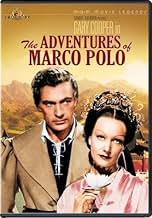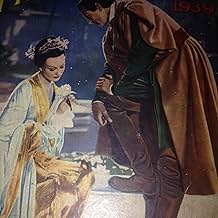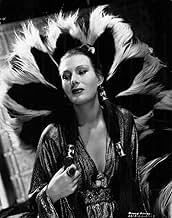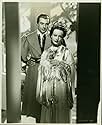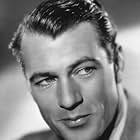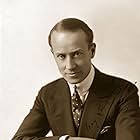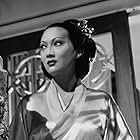IMDb RATING
5.6/10
1.2K
YOUR RATING
Adventurer Marco Polo travels to China, where he finds the Emperor Kublai Khan, court intrigue, danger, and unexpected love.Adventurer Marco Polo travels to China, where he finds the Emperor Kublai Khan, court intrigue, danger, and unexpected love.Adventurer Marco Polo travels to China, where he finds the Emperor Kublai Khan, court intrigue, danger, and unexpected love.
Robert Greig
- Chamberlain
- (as Robert Grieg)
Richard Alexander
- Ahmed's Aide
- (uncredited)
Reginald Barlow
- Giuseppi - Venetian Business Man
- (uncredited)
Granville Bates
- Venetian Business Man
- (uncredited)
- Directors
- Writers
- All cast & crew
- Production, box office & more at IMDbPro
Storyline
Did you know
- TriviaThe film did poorly at the box-office, becoming the biggest flop up to that time for both Gary Cooper and Samuel Goldwyn; it was estimated that it lost close to $700,000.
The film was criticized for many reasons but chief among them was the casting of Gary Cooper in the lead role - many felt the part called for a brash, swashbuckling hero rather than the low-key cowboy persona that Cooper exemplified. It is interesting to note, then, the man who first brought the idea to Goldwyn: swashbuckler extraordinaire Douglas Fairbanks.
- GoofsWhen Marco crosses a bridge, his party is attacked and his horse is driven over a cliff. A safety wire is clearly visible on the rider.
- Quotes
Chen Tsu: You have never seen food like this before?
Marco Polo: No. What is it? Snakes?
Chen Tsu: No! No, it has been eaten by the poor people in China for generations. We call it 'spah- get'.
- Crazy creditsOpening credits prologue: FOREWORD: Marco Polo lived in Venice seven hundred years ago. He was the first European to visit China and write the story of his adventures in that land of magic and mystery.
He was also the first traveling salesman. . . . . . .
- ConnectionsFeatured in History Brought to Life (1950)
Featured review
This is one of the oddest films to be made in pre-war America. Gary Cooper plays the Venetian explorer, and the film opens in a Venice seemingly constructed of cardboard. Here he is pursued by his comic servant, a sort of cross between a midget and a hyperactive gondolier.
In no time at all, we are in the mysterious realm of Cathay, where the streets are exotic, but seemingly made of cardboard as well. Marco is attracted by a strange voice - these medieval Chinese (or Mongols?)speak with impeccable Oxbridge accents. And this one, oddly enough, is reading to his children on some sort of verandah facing the street. This public recitation is from the New Testament, and Marco immediately completes the phrase, as it were. The placid mandarin figure takes this in his stride, and happens to mention that he is treating his son to a crash course in both eastern and western wisdom - which is not bad for a place that has not yet been visited by a European.
Soon our Gary (er, Marco) is served a mysterious oriental dish called 'spaghet', which he thinks he will introduce to Venice when he returns.
At the royal palace (made of a superior form of cardboard), he is soon immersed in the intrigues of the court of Kublai Khan. After some swashbuckling and some overacting, he falls for a beautiful princess. Alas, she is pledged to another, but our hero is given the task of escorting her to her intended.
And so they sail away into the sunset on a large sea-going junk (!), and he states that he will at least have her to himself for the year long voyage. The film ends on this morally dubious note, and the implication is that he eventually returned with his spaghetti to Venice and opened a restaurant.
In no time at all, we are in the mysterious realm of Cathay, where the streets are exotic, but seemingly made of cardboard as well. Marco is attracted by a strange voice - these medieval Chinese (or Mongols?)speak with impeccable Oxbridge accents. And this one, oddly enough, is reading to his children on some sort of verandah facing the street. This public recitation is from the New Testament, and Marco immediately completes the phrase, as it were. The placid mandarin figure takes this in his stride, and happens to mention that he is treating his son to a crash course in both eastern and western wisdom - which is not bad for a place that has not yet been visited by a European.
Soon our Gary (er, Marco) is served a mysterious oriental dish called 'spaghet', which he thinks he will introduce to Venice when he returns.
At the royal palace (made of a superior form of cardboard), he is soon immersed in the intrigues of the court of Kublai Khan. After some swashbuckling and some overacting, he falls for a beautiful princess. Alas, she is pledged to another, but our hero is given the task of escorting her to her intended.
And so they sail away into the sunset on a large sea-going junk (!), and he states that he will at least have her to himself for the year long voyage. The film ends on this morally dubious note, and the implication is that he eventually returned with his spaghetti to Venice and opened a restaurant.
- How long is The Adventures of Marco Polo?Powered by Alexa
Details
Box office
- Budget
- $2,000,000 (estimated)
- Runtime1 hour 44 minutes
- Aspect ratio
- 1.37 : 1
Contribute to this page
Suggest an edit or add missing content

